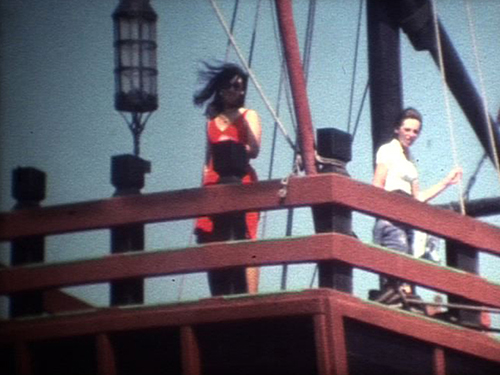
As a blend of ironic mockumentary and filmic essay, Paradise Recollected delves into the motives behind the making of home movies as well as the elements that characterise their visual content. The film is a poetic study of home movies as a kind of portrayal of the leisure culture that arose parallel with the advent of the inexpensive Super 8 cameras in the 1960s.
“[Rigole] presents us an imaginative method to interrogate the way archives work, to explore the complex dialogue between memory and history, and to study the language of home movies in particular. Rigole’s style can best be described as a filmic form of experimental life-writing that calls to mind the work of Jorge Luis Borges and Georges Perec [...].
[...]
Theorized around its ‘institution’, it is an historically-oriented contemporary artwork that not only draws on informal archives but produces them as well, and does so in a way that underscores the nature of all archival materials as found yet constructed, factual yet fictive, public yet private. Further, it often arranges these materials according to a quasi-archival logic, a matrix of citation and juxtaposition, and presents them in a quasi-archival architecture, a complex of texts and objects.”
Gerda Cammaer1
- 1Gerda Cammaer. “Jasper Rigole’s Quixotic Art Experiments With Home Movies and Archival Practices: The International Institute for the Conservation, Archiving, and Distribution Of Other People’s Memories (IICADOM),” The Moving Image: The Journal of the Association of Moving Image Archivists, vol. 12, no. 2, 2012, pp. 41–69. JSTOR, www.jstor.org/stable/10.5749/movingimage.12.2.0041. Accessed 11 Feb. 2020.

